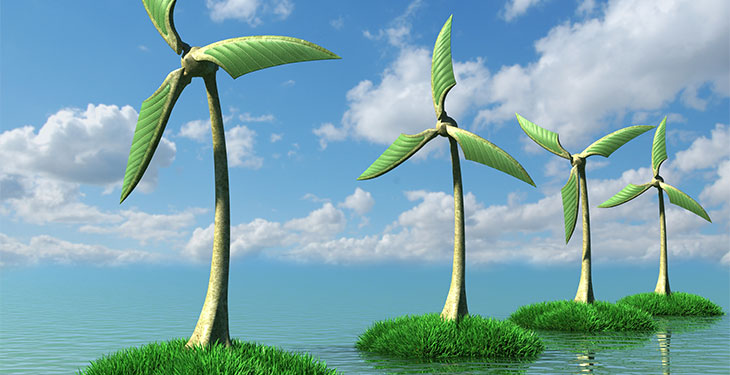I am skeptical that Romania will have wind energy production capacities in the Black Sea, until 2030, although I do not exclude this, but it will be very, very difficult, said, on Tuesday, in a specialized conference, the vice-president of the National Authority for Energy Regulation (ANRE), Zoltan Nagy-Bege.
“To tell you the truth, I’m skeptical that, by 2030, Romania will have wind energy production capacities in the Black Sea, because the stars would have to align for this to happen. I’m not completely ruling it out, but it will be very, very difficult and we should start working on these projects… since yesterday. What should happen in 2023, 2024, 2025 to ensure that by 2030 we have 5GW or at least 3GW of production in the Black Sea? It is regrettable that the Ministry of Energy is not here. All these things should be thought of somewhat in coordination. If we aim to continue to have a consumption of 6 – 7,000 MW, it is very easy to achieve energy independence. Instead, if we want a sustainable future for Romania and we still want to be part of the European Union, with an ambitious economic development, we will have to think very seriously about the year 2050,” said Nagy-Bege.
He added that by 2050, we will have to have data about consumption and who the consumers will be.
”What do we want to do by 2050, what should be the consumption, who should be the consumers, and I don’t mean only household consumption. Household consumption is covered regardless of whether we electrify or not and I think it is the smallest challenge in energy sector. We have to think about how we want Romania’s economy and industry to look by 2050. There will be progress, it is inevitable, but it only depends on our ambition to progress, if this progress will be average, mediocre, which will hide in European statistics in 2050, or considering Romania’s energy potential, for energy production in the Black Sea offshore wind, natural gas, solar, all these thought together. Personally, I am skeptical that, by 2030, we will be able to make these investments,” said Nagy-Bege.
He also said that it is necessary that, by the end of 2023, Romania should have a law for offshore wind energy, an agreement at least with Bulgaria, but also a support scheme for contracts for difference for wind power in order for investments in the Black Sea to develop, until 2030.
“I think that decarbonization, until 2050, is impossible without offshore electricity production in the Black Sea, if we also have the ambition to have an economy with at least a normal evolution. Why do I think that 2030 is not feasible? Without regional collaboration I think that the exploitation of the wind potential of the Black Sea would be greatly delayed. In the list for 2023, there should be at least an agreement with Bulgaria, a law for offshore wind and a support scheme for contracts for difference for offshore wind. There are at least three important things that should happen by the end of 2023, so that investments in the Black Sea can at least be discussed, until 2030,” the ANRE official claimed, according to Agerpres.
Energy Policy Group (EPG) organized, on Tuesday, the launch event of the “Offshore wind – the enabler of Romania’s decarbonisation” Report, which presented the potential of offshore wind energy for Romania’s decarbonisation and proposed solutions to a series of current challenges regarding this type of energy from the Black Sea.
